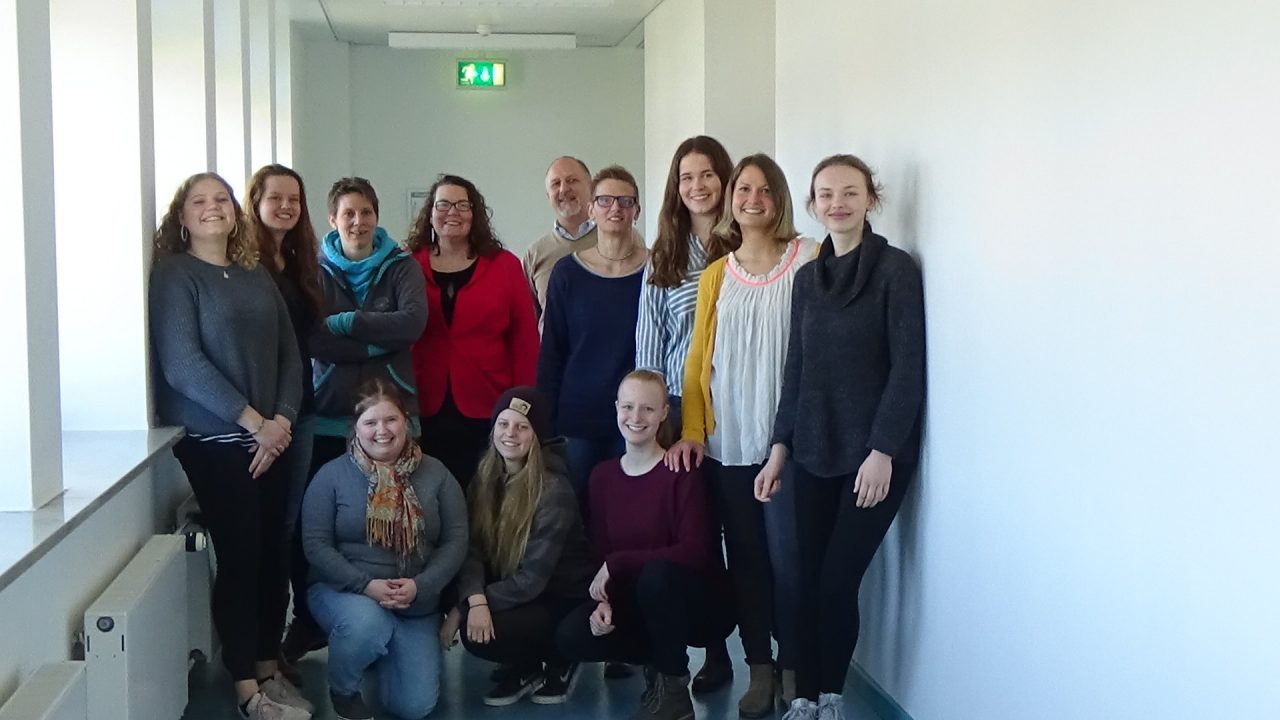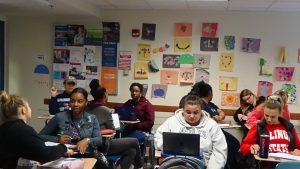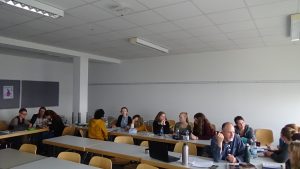Criminal Justice Sciences Professor Dawn Beichner created an interactive and exciting project this semester for her class that involves students from both Illinois State University and Fachhochschule Kiel, Germany. This project which revolves around searching for resources for unresolved trauma of incarcerated women, encouraged the students from both countries to participate via creative channels like video recordings using FlipGrid on ReggieNet. College of Applied Science and Technology (CAST) caught up with five students from the class to share their different experiences.
“I found the interactions between the German students extremely interesting. It was cool to see the responses they posted in the forums on ReggieNet. I also enjoyed watching their introduction videos on FlipGrid! To me, it will always be awesome to connect with students that are in a different country than the U.S. After comparing the two countries, I noticed that the U.S. has more resources for individuals with untreated trauma than Germany does,” Sydney Hering said.
Hering recalls that prior to the class, she would have thought that the U.S. had more trauma problems but the class was an eye-opening experience.
“I noticed that the resources for survivors/victims available in Germany are slimmer than here in the U.S. While progressing through this course over the semester, I learned a lot more about women offenders and how they are treated, not only in the U.S. but several other countries around the world. I knew women were treated differently and were disrespected more, but I am more aware of what happens in the world around us that we all may not see. I have a better understanding of how our society has grown over the last one hundred years. We have made little progress at a time, I hope we continue to grow as a criminal justice system,” she said.
According to Aziz Akinsola, after comparing Germany and the United States, he found out that the similarities in the manner of victimization and intimate partner violence that women face. “Basically, women will always face some danger,” he recounts. He also mentioned learning really interesting concepts about incarceration and how trauma goes beyond the American system.
“It was pretty nice interacting with other students from other countries hearing their different views on things,” he said.
Areanah Preston found the interaction with the students from Germany to be very eye-opening. “We had introspective discussions about unresolved traumas and restorative justice practices,” Preston said.
She added when the participants discussed the similarities between the United States and Germany in addressing the resources for victims/survivors, both countries seemed to provide an adequate number of resources for survivors and victims, but sometimes fell short on issues of fairness and accessibility. She also recalls learning that a deeper and more thorough examination on the lifestyles, history, and scenarios in which women find themselves is crucial to the criminal justice system.
Helena Gill similar enjoyed working with German students and loved being able to discuss different issues regarding women in the criminal justice field. According to her, “some of the similarities between the two countries were that the women would receive the same treatment. Meaning they would be treated as criminals. Mostly all the women that enter the system have been victims and have some underlining mental illness that goes hand and hand with their drug addictions. And instead of giving them the proper care they need they just overlook it. Another thing that was similar was the crimes that women committed. They would commit petty crimes for money or they would have drug offenses.” From this class, Gill learned that everyone has a story, and everyone needs to be heard.
“We have to do better with giving survivors their voices back to speak on what happened to them. No one should be told how to feel nor should they be told how long they should feel a certain way. Another thing I’ve learned is that we need more and better resources for victims and survivors. It’s sad to see how people are being treated, it’s not like we don’t have the money, it’s more so that people don’t care enough about funding a program,” she said.
“When interacting with the students in Germany, it was really nice to be able to communicate with people across the country. Because the timeframe was different we were able to communicate on flip-grid, as well as through the forum,” Nastasha Powers said.
She recounts that looking at the forums from Germany, she noticed that many of their resources were from psychology journals and not criminal justice databases. However, they were based on the same information about the different obstacles that women face. For her, she learned that no matter where you are in the world you will face obstacles being a woman. “I loved that they still have some form of passion as we do inequality of genders,” she said.



